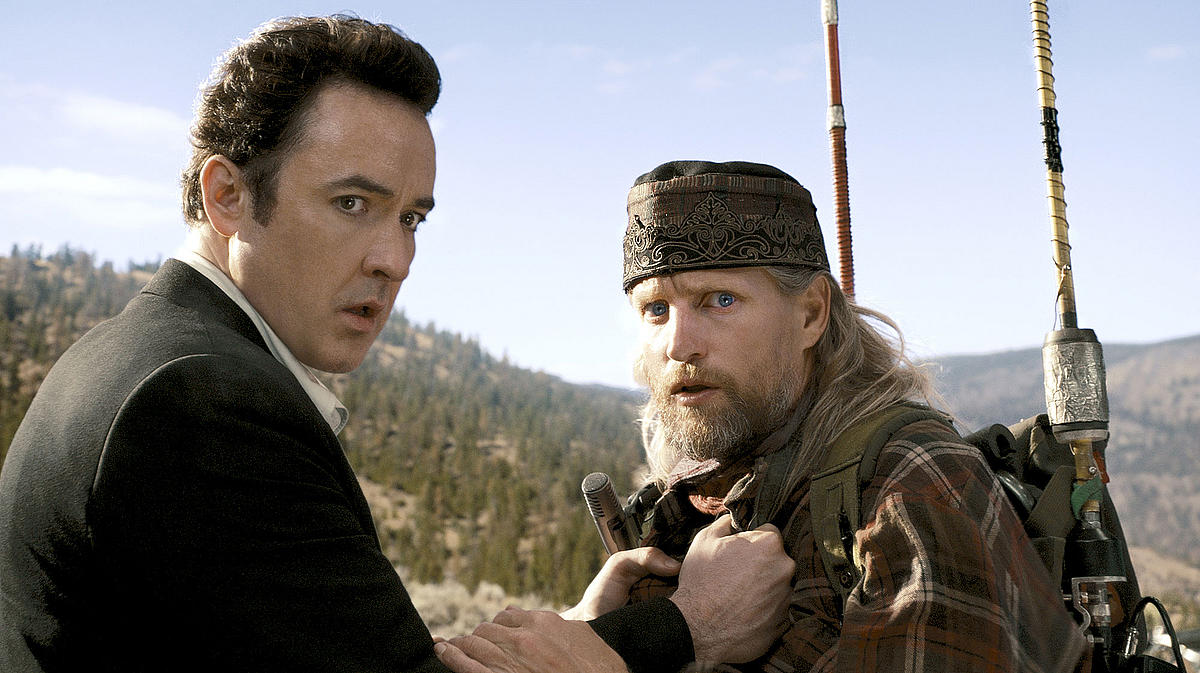You’ll be glad to know that writer-director Todd Solondz is not finished rummaging through the inner lives of depressive perverts. That puts it more cruelly than Solondz would, which is part of his charm. With Life During Wartime, a quasi-sequel, as he has called it, to his 1998 film Happiness (i.e. “the one about the pedophile”), Solondz revisits the variously troubled characters from that earlier film, and even recasts them. Instead of Philip Seymour Hoffman, we get Michael Kenneth Williams (who played Omar on The Wire). Instead of Jon Lovitz, we get Paul Reubens. And so on.
What remains is an arresting affinity for suburban dysfunction. You might call it the Solondz touch. You might call it an inappropriate touch. Here’s what the filmmaker has to say for himself.
Do people stop you in the street and say, “What’s wrong with you?”
I mean, people have been nice...to my face. I don’t quiz people. I don’t interrogate them. When people say nice things I say thank you. So no. I have to say it says something good about human nature that many people do stop and say nice things to me, actually. On the street, in the subway, what have you. But I know there are just as many people who hate everything I do. And they have the good discretion and good tact never to assault me.
I mean this as a compliment to you both: If Paul Reubens deserves to be in anyone’s films, it’s yours.
I’ve always loved him. He read for me years ago. So I had a sense of what he could do, and we both took a leap of faith in each other here. With Paul of course there’s an extra layer of pathos or poignancy because of the whole history that the audience is aware of with him. And also, no one has any idea that he’s even capable of such a performance. And that’s all very exciting. And I’m very playful; in my head the character probably even has his own Pee Wee Herman doll.
That’s something to think about. How did you first discover cinema?
I went to Yale, and they didn’t have a film major. But that’s where I first thought of the idea. I think because I was socially shy or awkward and felt intimidated. When I went, we had VHS tapes, they had film societies. It could be a Howard Hawks double-bill, followed by Maya Deren, followed by Bergman, Garbo. Every night, many options. And I went out all the time. In part to escape the pressures, the social pressures, and in the process I fell in love with movies in a way that I hadn’t taken seriously as a child. I mean, I can remember I was 16 and my mom came home, and she said, “I saw a movie, Todd. What a movie. It was One Flew Over the Cuckoo’s Nest.” I said, “Oh, I want to see that.” And she said, “No, no, you’re too young.” So I was very protected, in what I saw growing up. It had to be rated G. And then things changed in college. I didn’t have to understand a movie. I just let it all wash over me.
So at what age would the younger you be old enough to see the movies you now make?
I have a different viewpoint from my mom. I think children have built-in censors. I think parents are always worried about, “Oh my god, the sex, the violence.” But I can remember, as a kid, anytime they started kissing, I went for the Jujubes at the concession. I took a break. No interest. And I think usually the more anxious the parents are about that stuff, probably they don’t realize they themselves are the main source of whatever nightmares these kids are having.
What will be your next movie?
The title is Dark Horse. And I can tell you there’s no child molestation, rape or masturbation in it. But I’m afraid those are the only details I can share at this point.
Those are useful details.
It’s an abstraction, really, until it’s made. You have all sorts of plans; nothing ever turns out the way you plan it. If I were maybe smarter, wiser, I would maybe have a real career. But I’m not interested in that. I just make movies that interest me in my own way. I don’t pay attention -- I can’t -- to what I maybe should do. A lot of times I think, “Oh this could make a lot of money, I have a very marketable idea.” But then I end up writing something unmarketable. I listen to whatever compels me to put pen to paper. I don’t have a strategy. I’m very fortunate. When I look back, I say, “Oh my god, someone gave me money to make these movies.” It’s amazing. But I never presume that I will get money again. I have to be zen about all of this. I mean, you can just get depressed and jump out the window. But I have a sense of humor about it all.
